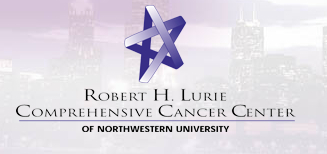Radiolabeled Glass Beads in Treating Patients With Liver Cancer That Cannot Be Removed by Surgery
| Status: | Recruiting |
|---|---|
| Conditions: | Liver Cancer, Cancer, Cancer |
| Therapuetic Areas: | Oncology |
| Healthy: | No |
| Age Range: | 18 - Any |
| Updated: | 6/6/2018 |
| Start Date: | December 2004 |
| End Date: | January 2021 |
A Humanitarian Device Exemption Use Protocol of TheraSphere for Treatment of Unresectable Hepatocellular Carcinoma
RATIONALE: Internal radiation therapy uses radioactive material placed directly into or near
a tumor to kill tumor cells. Using radiolabeled glass beads to kill tumor cells may be
effective treatment for liver cancer that cannot be removed by surgery.
PURPOSE: This phase II trial is studying how well radiolabeled glass beads work in treating
patients with liver cancer that cannot be removed by surgery.
a tumor to kill tumor cells. Using radiolabeled glass beads to kill tumor cells may be
effective treatment for liver cancer that cannot be removed by surgery.
PURPOSE: This phase II trial is studying how well radiolabeled glass beads work in treating
patients with liver cancer that cannot be removed by surgery.
OBJECTIVES:
- Provide supervised access to treatment with yttrium Y 90 glass microspheres
(TheraSphere®) to eligible patients with cancer of the liver who are not candidates for
surgical resection.
- Evaluate patient experience and toxicities associated with yttrium Y 90 glass
microspheres (TheraSphere®) treatment.
OUTLINE: This is a humanitarian device exemption use study.
Patients receive yttrium Y 90 glass microspheres (TheraSphere®) into the liver tumor through
a percutaneously placed catheter into the hepatic artery. Patients may receive additional
treatment 4-12 weeks after initial treatment at the discretion of the study physician.
After completion of study treatment, patients are followed at 2 weeks, 30 days, and then once
a year for approximately 2 years.
- Provide supervised access to treatment with yttrium Y 90 glass microspheres
(TheraSphere®) to eligible patients with cancer of the liver who are not candidates for
surgical resection.
- Evaluate patient experience and toxicities associated with yttrium Y 90 glass
microspheres (TheraSphere®) treatment.
OUTLINE: This is a humanitarian device exemption use study.
Patients receive yttrium Y 90 glass microspheres (TheraSphere®) into the liver tumor through
a percutaneously placed catheter into the hepatic artery. Patients may receive additional
treatment 4-12 weeks after initial treatment at the discretion of the study physician.
After completion of study treatment, patients are followed at 2 weeks, 30 days, and then once
a year for approximately 2 years.
DISEASE CHARACTERISTICS:
- Confirmed diagnosis of intrahepatic carcinoma
- Histopathology confirmation may be waived in patients with a radiographically
identifiable liver mass AND known laboratory or clinical risk factors for cancer
or elevated tumor markers such as AFP
- Unresectable disease
- No portal hypertension with portal venous shunt away from the liver
- No significant extrahepatic disease representing an imminent life-threatening outcome
- No evidence of potential delivery of > 16.5 mCi (30 Gy absorbed dose) radiation to the
lungs on either of the following:
- First yttrium Y 90 glass microspheres (TheraSphere®) administration
- Cumulative delivery of radiation to the lungs over multiple treatments
PATIENT CHARACTERISTICS:
Inclusion criteria:
- ECOG performance status 0-2
- Absolute granulocyte count ≥ 1,500/μL
- Platelet count > 25,000/μL
- Serum creatinine < 2.0 mg/dL (unless using non-iodinated contrast or on dialysis)
- Serum bilirubin ≤ 3.0 mg/dL (in some cases where there is an elevated bilirubin and
the tumor may be isolated from a vascular standpoint, treatment may proceed)
- Not pregnant or nursing
- Negative pregnancy test
- Fertile patients must use effective contraception
Exclusion criteria:
- Any of the following contraindications to angiography and selective visceral
catheterization:
- History of severe allergy or intolerance to any contrast media, narcotics,
sedatives, or atropine, that cannot be controlled using basic angiographic
techniques
- Bleeding diathesis, not correctable by usual forms of therapy
- Severe peripheral vascular disease that would preclude catheterization
- Evidence of any detectable Tc-99 macroaggregated albumin flow to the stomach or
duodenum, after application of established angiographic techniques to stop such flow
- Severe liver dysfunction or pulmonary insufficiency
- Active uncontrolled infection
- Significant underlying medical or psychiatric illness
PRIOR CONCURRENT THERAPY:
- At least 4 weeks since prior and no other concurrent anticancer therapy
We found this trial at
1
site
675 N Saint Clair St # 21-100
Chicago, Illinois 60611
Chicago, Illinois 60611
(312) 695-1156

Phone: 312-695-1301
Robert H. Lurie Comprehensive Cancer Center at Northwestern University The cancer center was first established...
Click here to add this to my saved trials